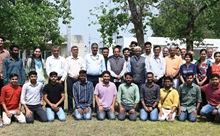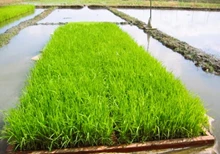
Fish consumption is commonly recommended to acquire a good supply of omega-3 fatty acids, which offer various benefits to the body.
Nonetheless, many people express concerns about eating fish during the monsoon season due to perceived health risks. There exist several reasons contributing to this caution regarding fish consumption in rainy periods. In the past, the waters surrounding India teemed with fish like tuna, mackerel, and pomfret, offering an abundance that could satisfy all. However, as the population grew and our appetite for fish persisted amidst progress and development, the situation began to change.
The advent of mechanized fishing trawlers equipped with powerful 150-horsepower diesel engines and extensive nets marked a significant shift. These trawlers indiscriminately harvested a wide range of aquatic life, including species that held little culinary value. Moreover, the disturbance caused by the trawlers' activities led to the disruption of fish eggs settled on the seafloor, resulting in their destruction.
Is It Safe Eating Fish During Monsoons?
Whether you prefer your fish crispy fried, coated in creamy sauces, or seasoned with authentic Indian flavours, the adoration for fish is truly indescribable. Its alluring taste and delightful texture make it a culinary favourite. Not only does fish tantalize the taste buds, but it also boasts a range of health benefits. Abundant in healthy fats, vitamin B12, calcium, selenium, omega-3 fatty acids, and proteins, fish stands as a nutritional powerhouse that supports brain, bone, and heart health. Incorporating fish into your daily diet undoubtedly elevates your overall well-being.
Nevertheless, aligning with the pursuit of healthier eating habits, you've likely encountered advice suggesting the avoidance of fish consumption during monsoon season. If you have a liking for fish, this counsel might be disheartening. Yet, several health experts caution against indulging in fish during this period due to potential consequences.
Mindful Eating in Monsoon!
In the monsoon season, the heavy rainfall and unsanitary surroundings can create an environment conducive to the proliferation of bacteria, viruses, and pathogens. Consequently, a common recommendation emerges to refrain from consuming leafy greens, eggs, meats, and fish during this transitional weather phase. The rationale behind this precaution is rooted in the feeding habits of animals.
As animals consume fodder and leafy greens, there's a possibility that these sources may harbour pathogens or bacteria. When humans consume animal products carrying these contaminants, it can result in a range of health issues such as indigestion, diarrhoea, stomach infections, and in more severe cases, even potentially life-threatening infections.
Why Should You Avoid Eating Fish During Monsoon?
During the monsoon season, health experts advise against eating seafood, particularly fish, for two main reasons:
-
The increased presence of pathogens and bacteria in water can infect fish, which can then be transmitted to humans upon consumption.
-
Fish undergo physiological changes during their breeding season that might impact their edibility for humans.
Notably, the Indian Government enforces a 61-day fishing ban along the coasts to protect the ecosystem and fish spawning. Despite availability, canned and preserved fish may suffer quality issues due to breeding changes and preservatives. Thus, it's best to refrain from consuming fish during the monsoon.











